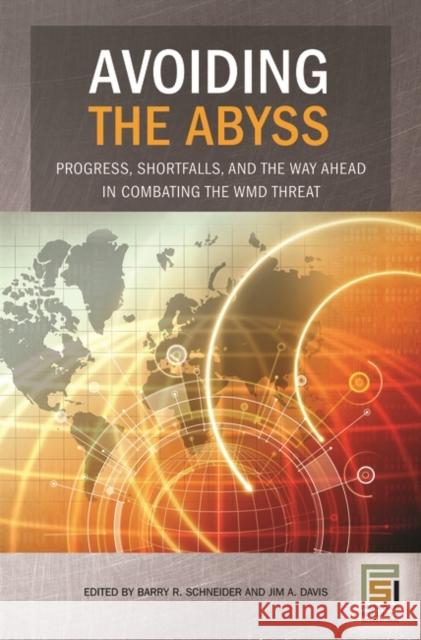Avoiding the Abyss: Progress, Shortfalls, and the Way Ahead in Combating the WMD Threat » książka
Avoiding the Abyss: Progress, Shortfalls, and the Way Ahead in Combating the WMD Threat
ISBN-13: 9780275990336 / Angielski / Twarda / 2006 / 440 str.
Avoiding the Abyss: Progress, Shortfalls, and the Way Ahead in Combating the WMD Threat
ISBN-13: 9780275990336 / Angielski / Twarda / 2006 / 440 str.
(netto: 229,36 VAT: 5%)
Najniższa cena z 30 dni: 238,85
ok. 30 dni roboczych
Bez gwarancji dostawy przed świętami
Darmowa dostawa!
In December 1993, Secretary of Defense Les Aspin announced the Counterproliferation Initiative, a response to President Clinton's assertion that if we do not stem the proliferation of the world's deadliest weapons, no democracy can feel secure. This timely book brings together contributions from a wide range of experts to help readers understand how far the nation has come since then--and what still needs to happen.Insightful essays examine: arms control treaty programs; export control regimes; interdiction; diplomatic/economic/political persuasion and sanctions; deterrence; counterforce; active and passive defense; and consequence management. Many positive changes have occurred since 1993. Regime changes in Iraq and South Africa have removed some WMD proliferation threats. Saddam Hussein has been overthrown, and a new Iraq is beginning to emerge. South Africa's clandestine WMD program has apparently ended. Libya announced it has given up its efforts to have active WMD programs. The Taliban and al Qaeda have been routed in Afghanistan, probably delaying efforts to develop or buy WMD.Yet, states continue to develop and export WMD and/or their delivery systems. As many as 30 states are still believed to have either a nuclear, biological, or chemical weapons program. Some have all three. India and Pakistan have acknowledged programs. Abdul Qadeer Khan, the scientist who directed the Pakistani A-bomb program, has admitted selling nuclear weapons designs, and nuclear enrichment equipment to Libya, Iran, and North Korea. His colleagues have held discussions with al Qaeda representatives. Ayman Al-Zawahiri, number two in the al Qaeda chain of command, claims that the terrorist organization has several suitcase A-bombs from the Former Soviet Union. It appears clear to many that Iran has a desire to develop nuclear weapons. Syria still has a chemical weapons program. North Korea's WMD profile has escalated.As Avoiding the Abyss so convincingly demonstrates, much has been accomplished since the Counterproliferation Initiative was launched-but much work still lies ahead. It is an important story for every American.











